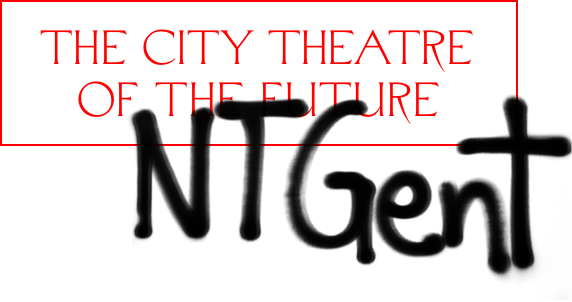
"To think, I need someone": tribute to late René Pollesch
| 27 February 2024The usual question is why something doesn’t work anymore. But the real one is "Why did it ever work?" Everything we have been left with is completely incomprehensible to us. I see that in the colour films of the thirties where people still touch each other as if they were locked in an incomprehensible classic.
When two people stand together on a stage, I always see, like in subtitled films, the words underneath "This is a classic". As in TV shows recorded before the Corona crisis, where people come unusually close to each other, it is always shown: "This is a recording". Probably also because of the proximity to the "Werther effect", to protect oneself in case the behaviour shown encounters mimetic imitators. Sarah Waterfeld recently drew my attention to the fact that due to the "Werther Effect", the entire media association is largely in agreement that suicides should not be reported or only in extreme cases. They are largely kept dead quiet.
But let's get back to the two people standing together on a stage and the classics. Somewhere it said that Shakespeare wrote ‘Lear’ in the days of the plague. But I think it's more conceivable, and I could prove it, that it was much more 'The Passionate Pilgrim' and 'The Phoenix and the Turtle'. There are people who assume that playwrights could write their plays alone or isolated. What bothers me about such plays, is that they read as if no actresses or actors were involved (or, moreover, the addressees). Which unfortunately is the case with most plays that are available as texts. The greatest achievement for me as a playwright is to confidently reject any assumption that I would write plays right now. I am happy to have worked out what is generally thought of the actress and the actor, namely that they cannot work alone (which they can do much easier). I haven't gotten anywhere thinking on my own. It's always just feeling. Alone you always feel good. I need someone to think. But I don't need anyone to talk. That's so difficult to see because you always think: so to speak, it takes two, NO! To think, it takes two or three or four, etc. To speak, if you can pull off the feat, it only takes one. In no other place is this so exposed as in theatre, perhaps also in a seminar room, that someone in the front speaks alone, but he or she doesn't think. In theatre, thinking only starts when a second or third person comes in. Speaking one does alone.
Once I lived together with someone, in a shared flat, and we got along well, but we didn't have much to say to each other. And that wasn't too bad. But sometimes, and just when I was brushing my teeth for example, he came and started a conversation with me. Always in moments, when that wasn't possible at all. Even, as another example, when I was standing at the electric coffee grinder and pressed the button, he came and wanted to start a conversation. So when the coffee grinder just made an ear-splitting noise, he would come and talk to me. And I didn't hear him, of course. And he didn't do it on purpose. I don't think he realised it. But for me, it was quite relieving that this could not be a conversation. When I was brushing my teeth, I couldn't answer, of course, or if I couldn’t hear him. And the fifth time that he came while I was brushing my teeth I thought, he's got to be kidding me, why now of all times? And at some point I noticed that he speaks without having to arrange for a conversation, and I think in these moments something is really talking. When the coffee grinder is on, it is clear that this is not going to be a conversation and now I can finally start talking. Yes, that’s it. You have to find another way to speak. So when 200 to 600 people in the auditorium are brushing their teeth. Then it’s possible. Or when they push the buttons on their coffee grinders. Then you can talk.
Everything you do is for someone else. Which is good. In the real world. In politics. You wake up for someone, you go to bed for someone. Someone you love, for example. But there's one place where you do something only for yourself, or everybody does it for themselves, and where you can even say to the other people in the other places, "Do it for yourself." Yes, and NOT for love. Yes, well, you are being watched. But you still do it for yourself. And that's the trick.
****
René Pollesch was one of the most influential German playwrights and directors. His plays have been shown all over the world. Since the 2021/22 season, René Pollesch was the artistic director of the Volksbühne am Rosa-Luxemburg-Platz. On Monday February 26th, a few days after his final play premiered, he passed away in Berlin at age 61. This text was Pollesch’s response to the question ‘Why theatre?’, published in NTGent’s Golden Book V (2020).
